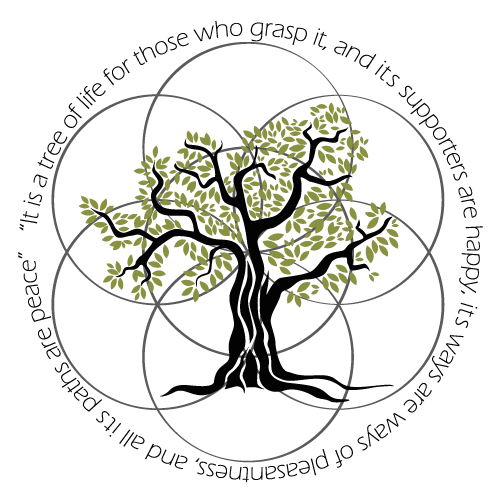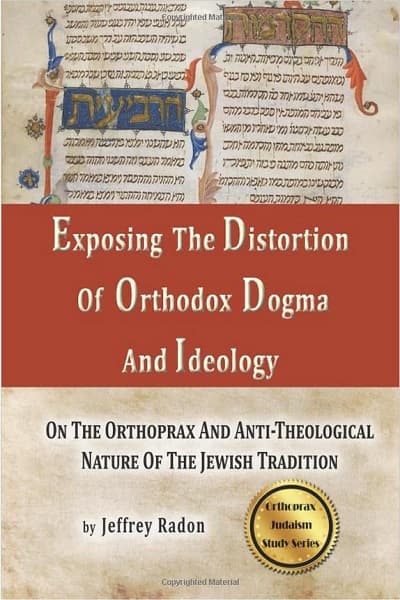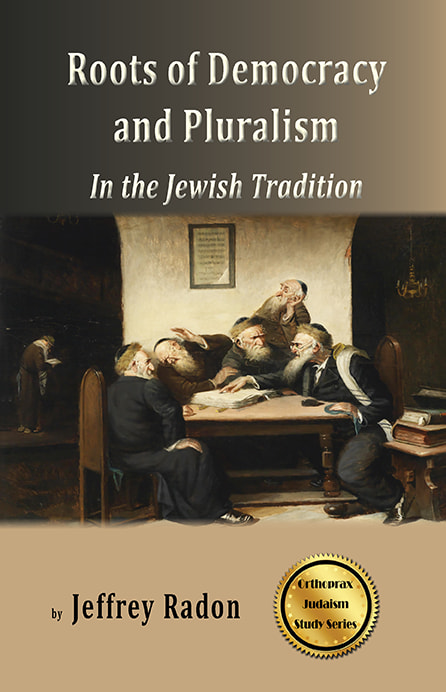Orthoprax Judaism
A study site – Biblical and jewish studies in a democratic spirit of pluralism, mutual respect and tolerance
An orthoprax (correct deeds) conception of Judaism is not advocacy of atheism or heterodox (non-orthodox) beliefs – however, according to an orthooprax conception of Judaism, in which moral deeds (rather than faith) are the essence of religion, atheism and heterodox beliefs are not heresy and not outside the fold
(for those with little or no background there is an article “Background on Judaism” in the section “Articles” defining important terms and concepts in addition to providing background about traditional Judaism based upon the Hebrew Bible and the Talmud)

My interview as a teacher of Jewish studies by a Christian pastor
A continuation of my interview by a Christian pastor that unknown to me was to be a mini debate
ORTHOPRAX JUDAISM STUDY SERIES – BOOKS
The Orthoprax Judaism study series consists of 5 books – one on the Hebrew Bible and the others on Judaism.
The first three books have been published and can be purchased on the links to Amazon below:
https://www.amazon.com/Democracy-Pluralism-Jewish-Tradition-Studies/dp/195638104X
https://www.amazon.com/Exposing-Distortion-Orthodox-Dogma-Ideology-ebook/dp/B07NXZHKL1/
https://www.amazon.com/Reconciling-Contradictory-Abraham-Orthoprax-Anti-Theological/dp/1946124176/
My other books on Judaism will be published in the future:
Roots of Humanistic Psychology in the Hebrew Bible and Jewish Tradition – Journal of Conversations with My Life Coach Karen
Maimonides: the Great Heterodox-Orthodox Thinker
Click on the image to purchase on Amazon
The meaning of the term orthoprax
The term orthodox is a Latin term not indigenous to the Jewish tradition, representing an influence of Christianity; and, literally means correct doctrine implying that the essence of religion is belief in a theological sense. The true nature of the Jewish tradition based upon the Hebrew Bible and the Talmud, if we insist upon using Latin terms, is orthoprax; and, literally means correct practice implying that Biblical religion and traditional Judaism demand right behavior (ethically and ritually) but no binding theological dogma. There is no binding theological dogma in the Hebrew Bible, and the Talmudic rabbis did not formulate a binding creed.
The term orthoprax refers to the pragmatic and anti-theological nature of the Jewish tradition based upon the Hebrew Bible and the Talmud – in contradistinction to the term orthodox, which implies a theological and dogmatic conception of religion. Most important, an orthodox conception of Judaism leads to intolerance of those not bound by orthodox dogma and ideology, while an orthoprax conception of Judaism allows for the bridging of gaps among Jews of differing ideological conceptions in emphasizing a shared commitment to a life of good deeds, at least in a moral sense, as the essence of religion.
The term orthoprax is not being used on this internet site in an ideological sense, and the intention is not to create an ideological movement. The term orthoporax is not being used on this internet site in a sociological sense referring to Jews who are observant of tradition even though not believing in God or in orthodox dogma and ideology. Rather, the term is being used only in a descriptive sense in describing the true nature of the Jewish tradition based upon the Hebrew Bible and the Talmud – as a cry to return to the orthoprax roots and heritage of the Jewish tradition (as reflected in the Hebrew Bible and the Talmud) emphasizing deeds above faith as the essence of Judaism thus allowing for the bridging of gaps among Jews of differing ideological conceptions.
Misconceptions about the term orthoprax
The literal translation of the term orthoprax as correct practice can be misleading in that there is a tendency to understand an orthoprax conception in a narrow sense as ritual practice. This is a misconception because deeds (practice) especially in the Biblical conception of religion are most importantly ethical rather than ritual in nature as reflected in the verse – “You shall do that which is righteous and good in the eyes of the Lord” (Deuteronomy 6, 18). Thus, an orthoprax conception of Judaism (faithful to the Biblical conception of religion) means that Judaism demands good deeds most importantly in a moral sense, and correct deeds or practice in terms of ritual is of secondary importance.
The term orthoprax does not mean that the Hebrew Bible and traditional Talmudic Judaism are not concerned with inward feeling or motivation, or that they are absent of philosophic ideas. Rather, the Hebrew Bible and traditional Talmudic Judaism are clearly concerned with inward motivation, and filled with deeply profound philosophic ideas, but are orthoprax in nature in that they formulate no formal, binding theological creed that one must accept, and emphasize the importance of good deeds above faith as the essence of religion.
It is a misconception that the concept of faith is unimportant in an orthoprax conception of religion. The concept of faith can be understood in an orthodox or orthoprax sense. Faith in an orthodox sense is philosophical or propositional in nature, and an end in and of itself. Philosophic or propositional (orthodox) faith is expressed in the adoption of philosophic propositions that are held, known or believed to be true, implying a conception of religion in which the essence of religion is knowledge or belief in an abstract intellectual sense, as opposed to action. By contrast, faith in an orthoprax sense is psychological or experiential in nature, and a means to the greater end of morality – such as the Biblical conception of faith. In the Biblical conception, God is conceived not only as a God of creation but most importantly as a moral God who demands morality; and, faith in God in the Biblical conception is in the psychological sense of trust, loyalty and commitment (matters of the heart rather than reason), which expresses itself in good deeds implying that the essence of religion is moral character and moral action regardless of theological belief (or lack of theological belief). On the basis of an orthoprax conception of faith, such as the Biblical conception, a moral atheist is a truly believing person in an experiential sense of the heart; and conversely, one who believes that God exists from a theological point of view but lives an immoral life is not a truly believing person in an experiential sense of the heart – as true faith in an orthoprax and psychological sense of the heart is not a matter of theology but of moral character revealed not in philosophic beliefs or declarations but in actions.


